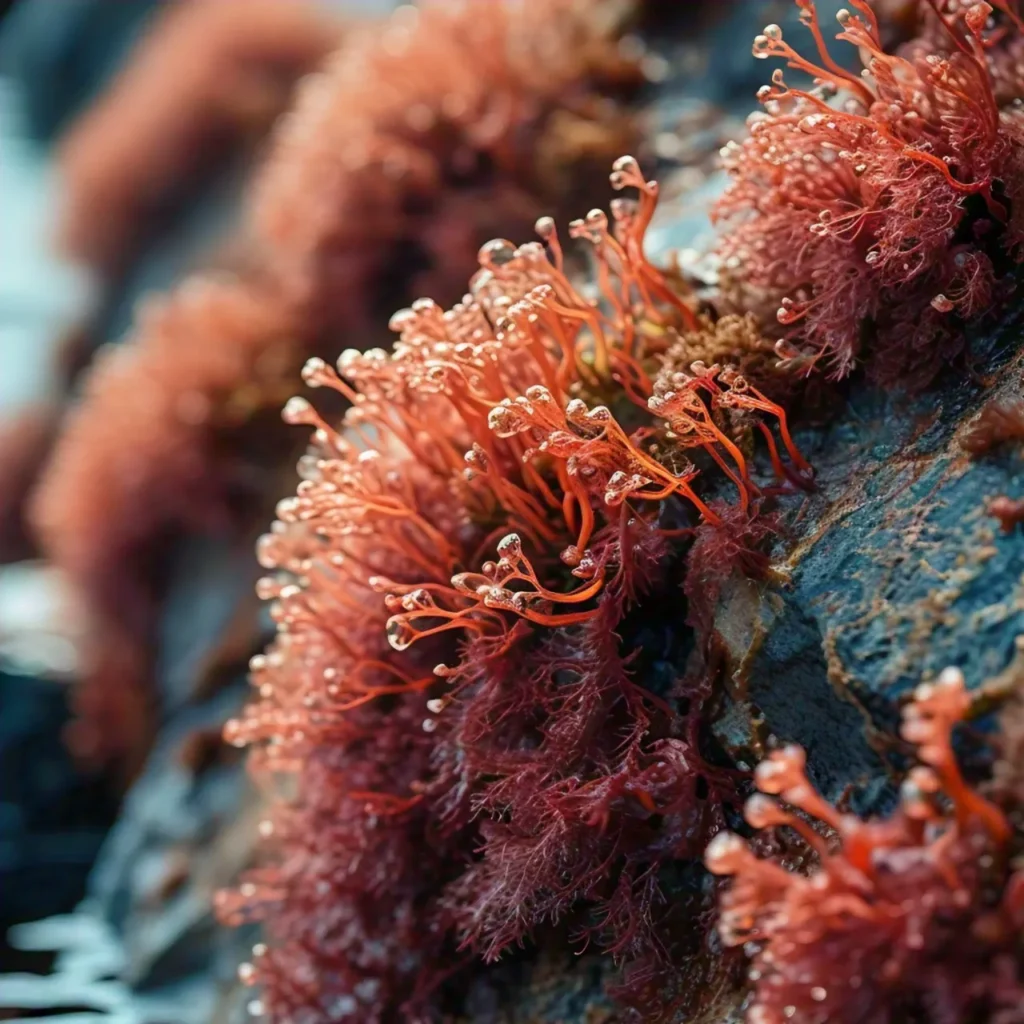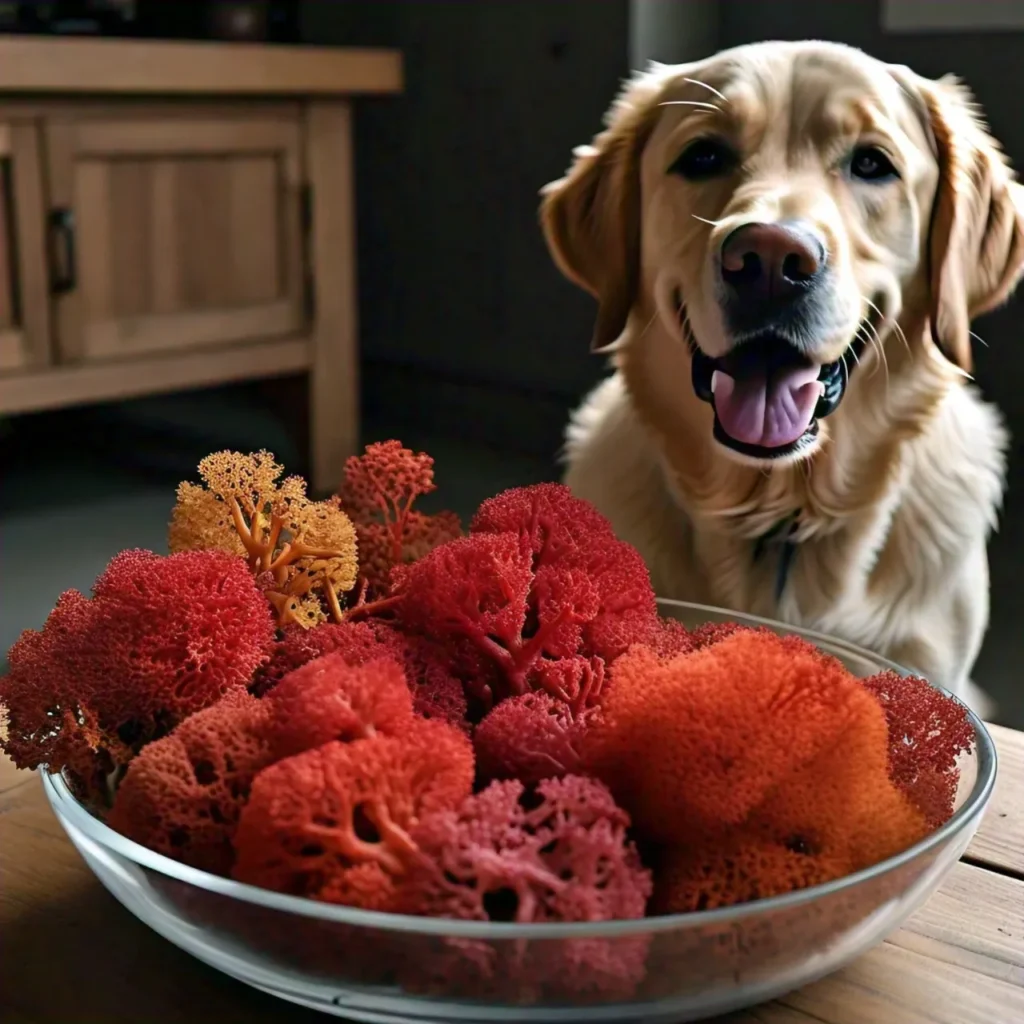As pet owners, we often wonder about adding superfoods to our dog’s diet for their health and longevity. One such superfood that’s gained attention recently is sea moss. Commonly consumed by humans for its vast health benefits, you might be asking: can dogs eat sea moss?
In this article, we’ll explore whether sea moss is safe for dogs, its potential health benefits, and what you need to keep in mind before introducing it into your dog’s diet.
What is Sea Moss?
Sea moss, also known as Irish moss (scientifically Chondrus crispus), is a type of red algae found in the Atlantic Ocean, particularly along the rocky shores of Ireland, the UK, and North America. It’s packed with nutrients and minerals, which is why it’s often labeled as a “superfood” for humans.
Traditionally used in various cultures for its medicinal properties, sea moss has gained popularity in recent years for its potential to boost immune function, improve skin health, and support overall wellness.
But, does this nutrient-rich algae offer the same benefits to our canine companions?
Is Sea Moss Safe for Dogs?
The short answer is yes – dogs can eat sea moss in moderation. However, like any new food or supplement, it’s essential to introduce it gradually and observe your dog for any adverse reactions.
In fact, sea moss can offer a number of benefits for dogs due to its rich nutrient profile. However, just because it’s safe doesn’t mean it should be a staple in their diet. Let’s dive into the specific benefits and considerations.
Health Benefits of Sea Moss for Dogs
Sea moss is known to be incredibly nutritious, offering a variety of essential minerals and vitamins that can be beneficial for dogs when given appropriately. Here are some potential benefits of sea moss for your furry friend:

1. Rich in Essential Nutrients
Sea moss contains 92 out of 102 essential minerals that a dog’s body needs to function properly. This includes calcium, potassium, iron, magnesium, and iodine, all of which support various bodily functions.
- Calcium: Important for bone health.
- Magnesium: Supports muscle and nerve function.
- Iodine: Crucial for thyroid health and metabolism.
2. Supports Digestive Health
Sea moss is a great source of soluble fiber, which can aid in digestion. This can be particularly beneficial for dogs who suffer from digestive issues such as constipation or irritable bowel syndrome (IBS).
3. Boosts Immune Function
Due to its antioxidant properties, sea moss can help strengthen your dog’s immune system. This means that it may support their ability to fight off illnesses and infections, helping them stay healthier over time.
4. Improves Skin and Coat Health
Just like humans, dogs can benefit from the skin and coat-enhancing properties of sea moss. Its rich vitamin content (especially vitamins A, E, and K) can contribute to healthier, shinier fur and reduce issues such as dry skin or hot spots.
5. Anti-Inflammatory Benefits
Sea moss contains compounds that have anti-inflammatory properties, which could be helpful for dogs suffering from arthritis, joint pain, or other inflammatory conditions.
How Much Sea Moss Can Dogs Eat?
While sea moss offers numerous benefits, it’s essential to moderate the amount you give to your dog. Sea moss is a highly concentrated source of nutrients, and giving too much can potentially cause imbalances in their system.
Start with a small amount, such as a teaspoon of powdered sea moss, mixed into your dog’s food, and observe how they react. If they tolerate it well, you can gradually increase the amount based on your dog’s size and dietary needs.
Recommended Dosage Based on Dog Size:
- Small dogs (under 20 lbs): ½ teaspoon, 2-3 times a week.
- Medium dogs (20-50 lbs): 1 teaspoon, 2-3 times a week.
- Large dogs (50+ lbs): 1½ teaspoons, 2-3 times a week.
It’s always best to consult your veterinarian before introducing sea moss or any new supplement into your dog’s diet.
Potential Risks and Considerations
Although sea moss is generally safe, there are some potential risks to be aware of:
1. Iodine Overload
Sea moss is high in iodine, which is necessary for proper thyroid function. However, too much iodine can cause thyroid issues, including hyperthyroidism. If your dog already has a thyroid condition, it’s best to avoid giving them sea moss or consult a vet beforehand.
2. Allergies or Sensitivities
While rare, some dogs may be allergic to sea moss. If you notice any symptoms of an allergic reaction, such as vomiting, diarrhea, or itching, discontinue use immediately and consult your vet.
3. Heavy Metal Contamination
Sea moss, being a product of the ocean, can potentially contain traces of heavy metals like mercury or lead, especially if sourced from polluted waters. Always ensure you purchase high-quality, organic sea moss from reputable suppliers.
4. Digestive Upset
Introducing any new food into your dog’s diet can cause temporary digestive upset, including diarrhea or gas. To avoid this, start with a small amount and gradually increase the dosage.
Personal Experience: Introducing Sea Moss to My Dog’s Diet
When I first heard about sea moss for dogs, I was curious but hesitant. My dog, a 7-year-old Labrador Retriever, has struggled with skin allergies and occasional digestive issues. After researching its benefits and speaking to my vet, I decided to give it a try.
I started by mixing a small amount (about half a teaspoon) of powdered sea moss into her food twice a week. Within a few weeks, I noticed her coat looked shinier and her skin less irritated. Even her digestion seemed to improve, with fewer episodes of stomach upset.
However, I made sure to monitor her closely for any signs of negative reactions, and I stuck to the recommended dosage to avoid overloading her system with iodine. My experience with sea moss has been positive, but I always recommend consulting a vet before adding any new supplement to your pet’s diet.
How to Give Sea Moss to Your Dog
There are a few ways you can introduce sea moss into your dog’s diet:
- Powder Form: Sprinkle a small amount of powdered sea moss over your dog’s food.
- Sea Moss Gel: You can purchase or make sea moss gel and mix it into their meals.
- Commercial Dog Supplements: Some pet food brands offer supplements that include sea moss for dogs.
No matter which form you choose, make sure the product is organic and free from additives or preservatives.
Final Thoughts: Should You Give Sea Moss to Your Dog?
Sea moss can be a beneficial addition to your dog’s diet, offering a range of vitamins, minerals, and health benefits. However, it’s crucial to introduce it cautiously, monitor for any reactions, and consult your vet to ensure it’s the right choice for your pet.
As with any supplement, moderation is key. While sea moss can enhance your dog’s health in various ways, it shouldn’t replace a well-balanced, complete dog food that meets their primary nutritional needs.
Have you tried sea moss for your dog? What was your experience? Share your thoughts in the comments below!
